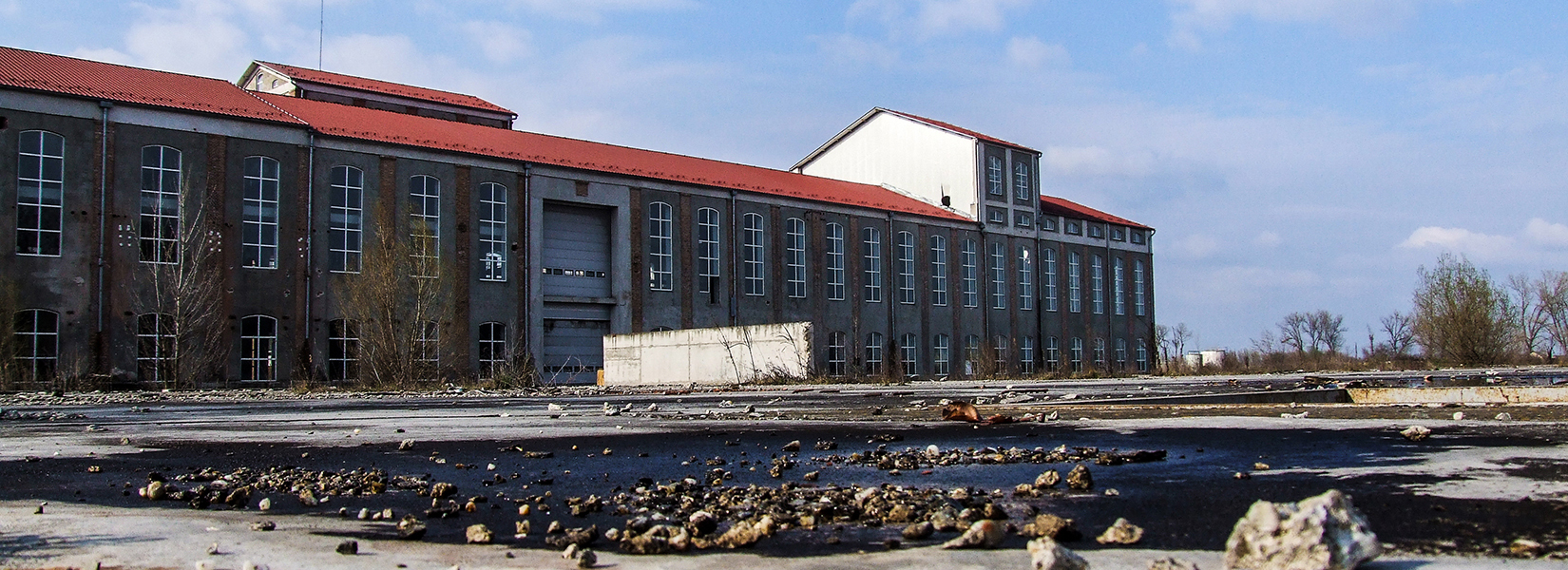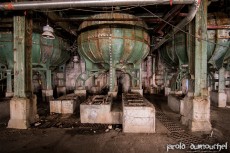Destroyed in 2004, the Terken brewery was a huge industrial complex of more than four hectares. Located in the Union area in Roubaix, near Lille, the factory was, at one time, a symbol of "close symbiosis" between the company and its community...
The abandoned Baranja sugar factory
National Pride
Located in the region of Baranja in Croatia, Šećerana is a settlement of 559 inhabitants near Beli Manastir. Today forgotten and half destroyed, the old Baranja Sugar factory has been built in 1898 and became a state company in 1906. Funded with the Prince Friedrich Karl of Prussia’ money, he also accepted a rate of 1,5%. Known as the greatest flourishing in the seventies and the eighties, there were more than hundred workers at its golden age.
In the 90s, the sugar plant is closed by its owner: PIK Belje. But in 2004, the plant is reopened and it starts to produce starch. The plant is finally closed few years later.
Today, half of the plant has been destroyed and Šećerana is a little town who lost more than a plant: there is no more restaurant, discotheque or bowling.
Related content
This is one of the oldest stationery in Quebec. Founded in 1851 by a american businessman, the company is composed of a half-dozen buildings on a fifteen hectares site. Saying that the site is large is an understatement, not only because it has a...
So you might think the old Conveyor dock's tower straight out of the fourteenth century, but you're wrong. The pier on which it is located was built in 1956-1957 and was one of the last marine works at the port of Montreal before it does change...
For the region, it is a vestige of an industrial era that is now over. Whereas in the past, the factory gave a salary to nearly a hundred employees, the complex is now padlocked and deserted, although monitored by about twenty surveillance...


























